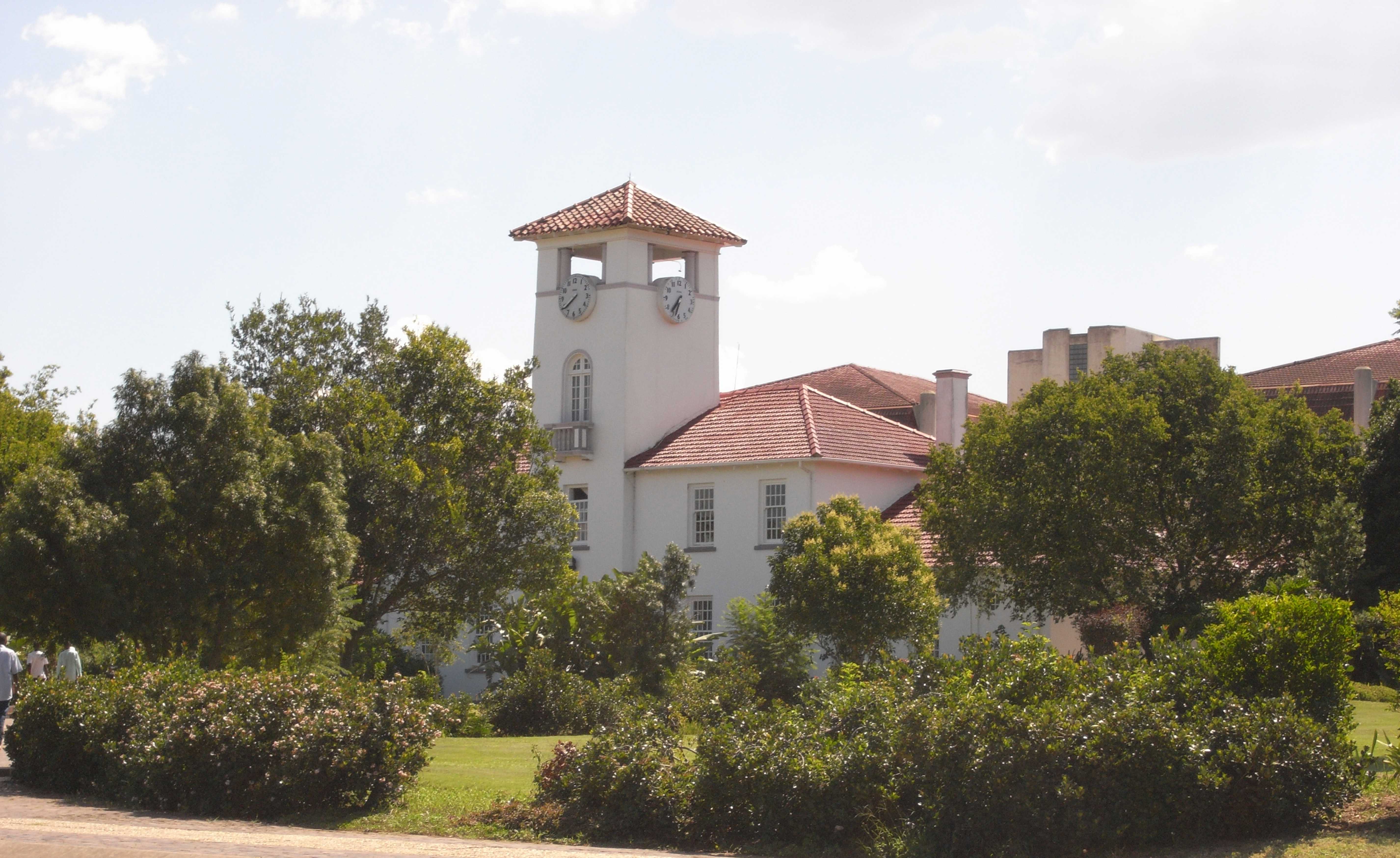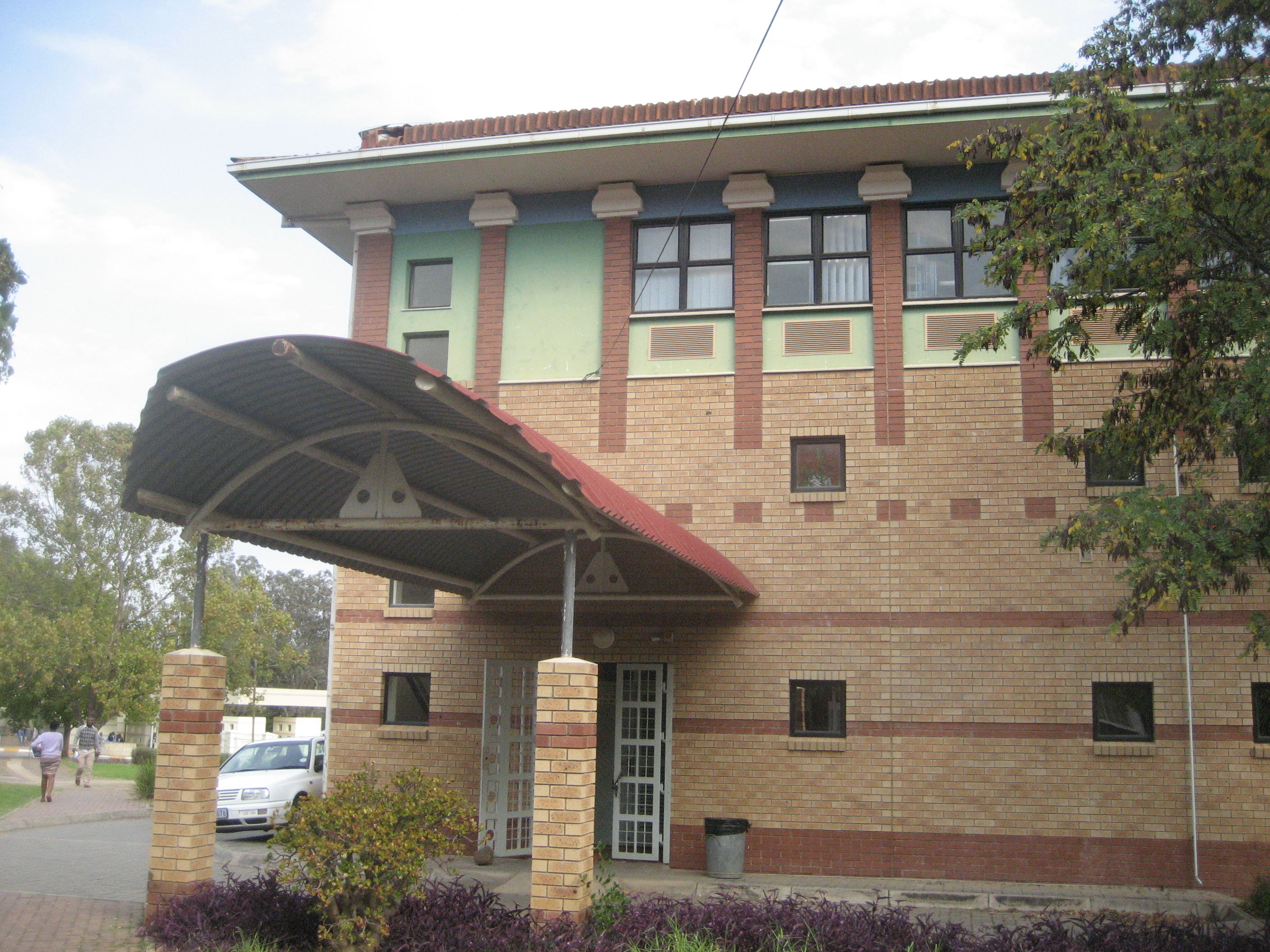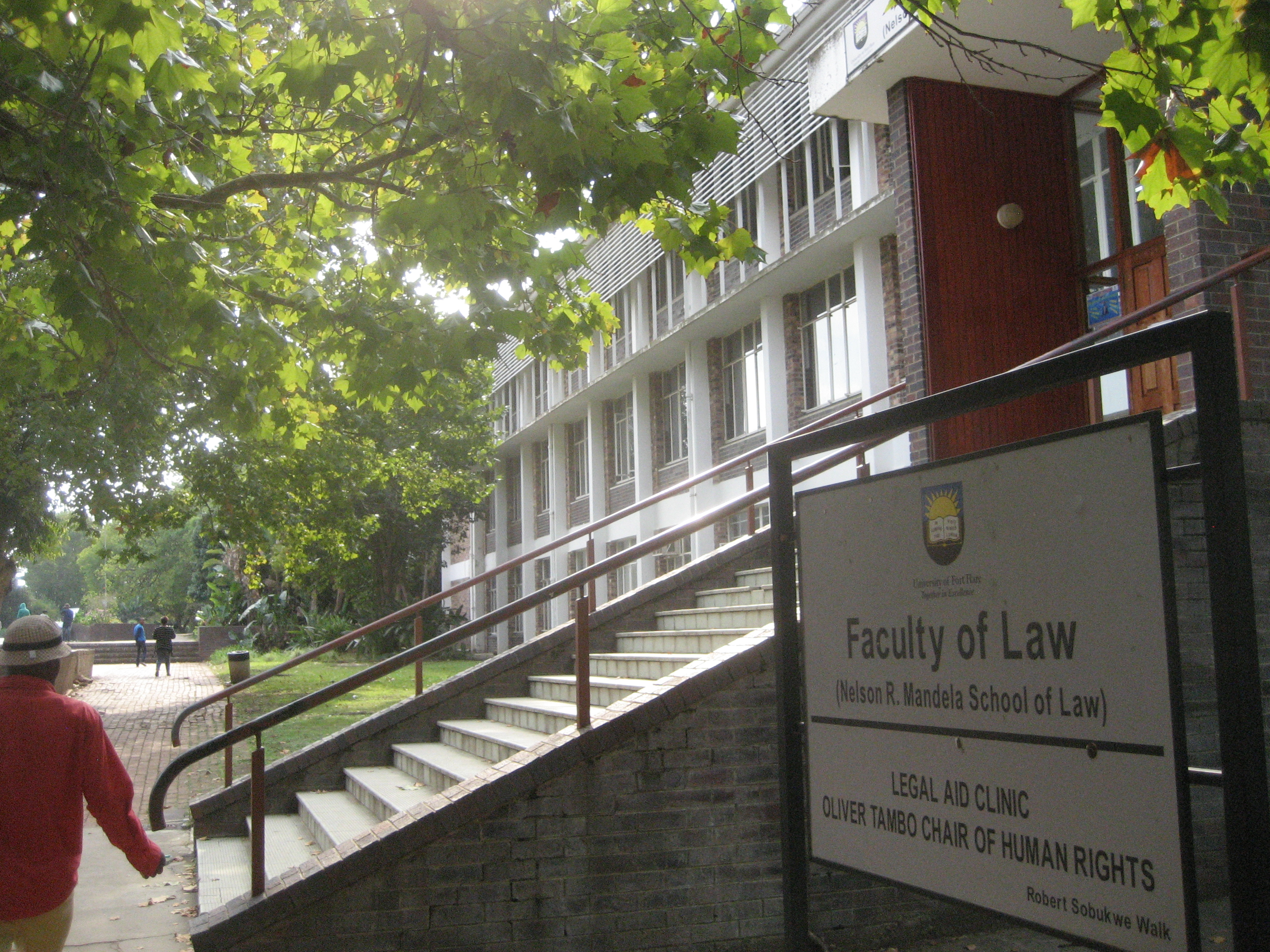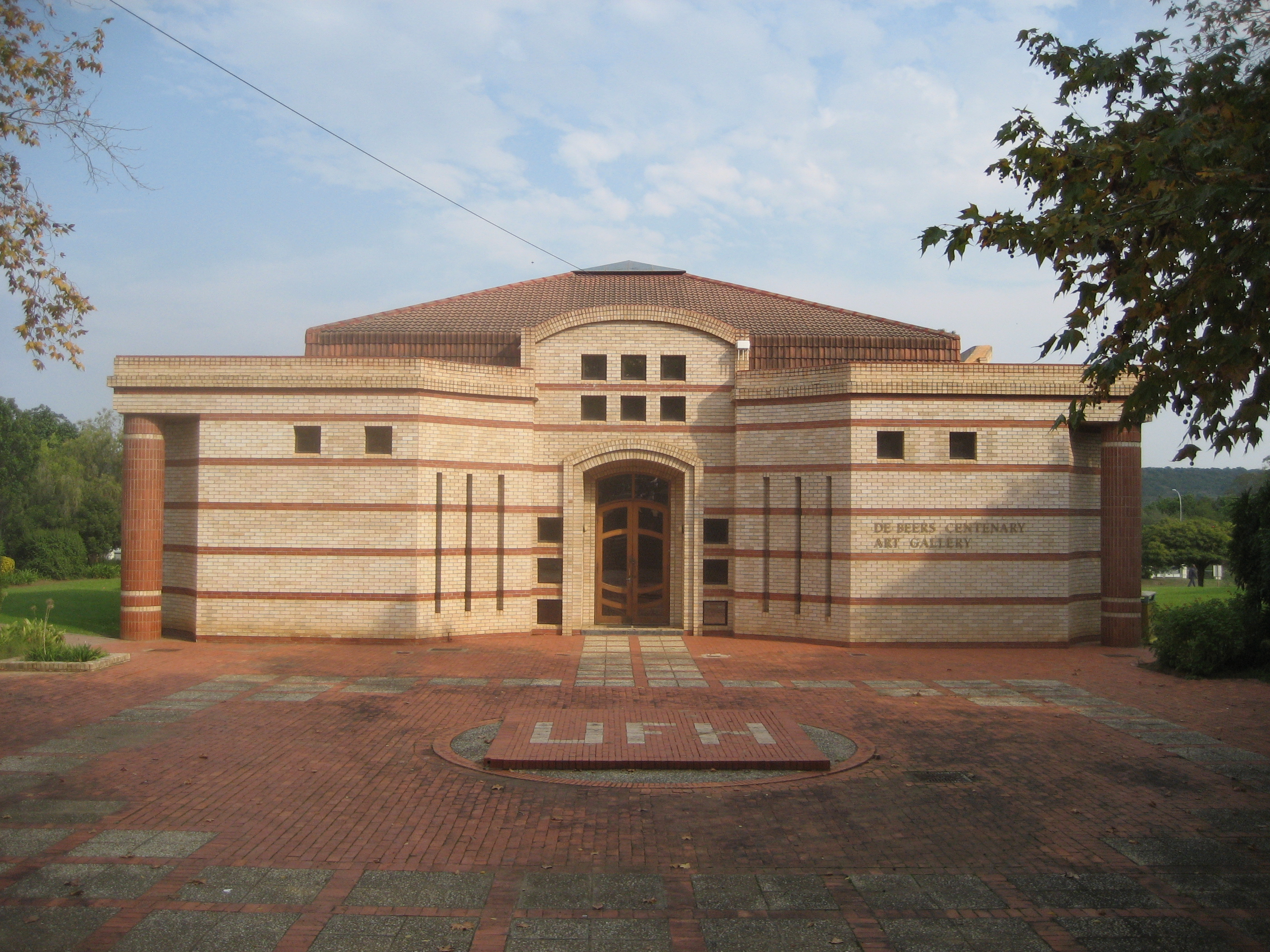University of Fort Hare on:
[Wikipedia]
[Google]
[Amazon]
The University of Fort Hare is a
 Originally,
Originally,
Mission Schools Opened World to Africans, but Left an Ambiguous Legacy
'' Leading opponents of the apartheid regime who attended included
Leading opponents of the apartheid regime who attended included
 The university's main campus is located in Alice near the
The university's main campus is located in Alice near the

 Further narrowing the focus, 14 institutes were founded to deal with specific issues, such as the UNESCO Oliver Tambo Chair of Human Rights. Through their location the institutes have access to poor rural areas, and consequently emphasis is placed on the role of research in improving quality of life and economic growth (and especially sustainable job creation). Among the outreach programmes, the Telkom Centre of Excellence maintains a "living laboratory" of four schools at Dwesa on the Wild Coast, which have introduced computer labs and internet access to areas that until 2005 did not even have electricity. The projects at Dwesa focus research on Information and Communication for Development (ICD).
Incorporation of Rhodes University's former campus in East London in 2004 gave the university an urban base and a coastal base for the first time. Subsequent growth and development on this campus have been rapid. Initial developments of the new multi-campus university were guided by a three-year plan; currently the university is following the new "Strategic Plan 2009-2016", set to take the institution to its centennial year.
Further narrowing the focus, 14 institutes were founded to deal with specific issues, such as the UNESCO Oliver Tambo Chair of Human Rights. Through their location the institutes have access to poor rural areas, and consequently emphasis is placed on the role of research in improving quality of life and economic growth (and especially sustainable job creation). Among the outreach programmes, the Telkom Centre of Excellence maintains a "living laboratory" of four schools at Dwesa on the Wild Coast, which have introduced computer labs and internet access to areas that until 2005 did not even have electricity. The projects at Dwesa focus research on Information and Communication for Development (ICD).
Incorporation of Rhodes University's former campus in East London in 2004 gave the university an urban base and a coastal base for the first time. Subsequent growth and development on this campus have been rapid. Initial developments of the new multi-campus university were guided by a three-year plan; currently the university is following the new "Strategic Plan 2009-2016", set to take the institution to its centennial year.
Official website
{{DEFAULTSORT:Fort Hare, University of University of Fort Hare, Universities in the Eastern Cape Educational institutions established in 1916 Public universities in South Africa 1916 establishments in South Africa Raymond Mhlaba Local Municipality
public university
A public university or public college is a university or college that is in owned by the state or receives significant public funds through a national or subnational government, as opposed to a private university. Whether a national universi ...
in Alice, Eastern Cape
Alice is a small town in Eastern Cape, South Africa that is named after Princess Alice, the daughter of the British Queen Victoria. It was settled in 1824 by British colonists it's adjacent to the Tyhume River. It has rail and road connectio ...
, South Africa
South Africa, officially the Republic of South Africa (RSA), is the southernmost country in Africa. It is bounded to the south by of coastline that stretch along the South Atlantic and Indian Oceans; to the north by the neighbouring coun ...
.
It was a key institution of higher education for Africans from 1916 to 1959 when it offered a Western-style academic education to students from across sub-Saharan Africa
Sub-Saharan Africa is, geographically, the area and regions of the continent of Africa that lies south of the Sahara. These include West Africa, East Africa, Central Africa, and Southern Africa. Geopolitically, in addition to the List of sov ...
, creating an African elite. Fort Hare alumni were part of many subsequent independence movements and governments of newly independent African countries.
In 1959, the university was subsumed by the apartheid
Apartheid (, especially South African English: , ; , "aparthood") was a system of institutionalised racial segregation that existed in South Africa and South West Africa (now Namibia) from 1948 to the early 1990s. Apartheid was ...
system, but it is now part of South Africa's post-apartheid public higher education system. It is the alma mater of well-known people including Nelson Mandela
Nelson Rolihlahla Mandela (; ; 18 July 1918 – 5 December 2013) was a South African anti-apartheid activist who served as the first president of South Africa from 1994 to 1999. He was the country's first black head of state and the ...
, Desmond Tutu
Desmond Mpilo Tutu (7 October 193126 December 2021) was a South African Anglican bishop and theologian, known for his work as an anti-apartheid and human rights activist. He was Bishop of Johannesburg from 1985 to 1986 and then Archbish ...
, Robert Sobukwe
Robert Mangaliso Sobukwe (5 December 1924 – 27 February 1978) was a prominent South African anti-apartheid revolutionary and founding member of the Pan Africanist Congress (PAC), serving as the first president of the organization.
Sobukwe w ...
, Oliver Tambo
Oliver Reginald Kaizana Tambo (27 October 191724 April 1993) was a South African anti-apartheid politician and revolutionary who served as President of the African National Congress (ANC) from 1967 to 1991.
Biography
Higher education
Oliv ...
, and others.
History
 Originally,
Originally, Fort Hare
Fort Hare was an 1835 British-built fort on a rocky outcrop at the foothills of the Amatola Mountains; close to the present day town of Alice, Eastern Cape in South Africa.
History
Originally, Fort Hare was a British fort in the wars between t ...
was a British fort in the wars between British settlers and the Xhosa
Xhosa may refer to:
* Xhosa people, a nation, and ethnic group, who live in south-central and southeasterly region of South Africa
* Xhosa language, one of the 11 official languages of South Africa, principally spoken by the Xhosa people
See als ...
of the 19th century. Some of the ruins of the fort are still visible today, as well as graves of some of the British soldiers who died while on duty there.
During the 1830s, the Lovedale Missionary Institute was built near Fort Hare. James Stewart, one of its missionary
A missionary is a member of a Religious denomination, religious group which is sent into an area in order to promote its faith or provide services to people, such as education, literacy, social justice, health care, and economic development.Tho ...
principals, suggested in 1878 that an institution for higher education of black students needed to be created. However, he did not live to see his idea put into operation when, in 1916, Fort Hare was established with Alexander Kerr as its first principal. D.D.T Jabavu was its first black staff member who lectured in Latin
Latin (, or , ) is a classical language belonging to the Italic languages, Italic branch of the Indo-European languages. Latin was originally a dialect spoken in the lower Tiber area (then known as Latium) around present-day Rome, but through ...
and African languages
The languages of Africa are divided into several major language families:
* Niger–Congo or perhaps Atlantic–Congo languages (includes Bantu and non-Bantu, and possibly Mande and others) are spoken in West, Central, Southeast and Souther ...
. In accord with its Christian principles, fees were low and heavily subsidised. Several scholarships were also available for indigent students.
Fort Hare had many associations over the years before it became a university in its own right. It was initially called the South African Native College and attached to the University of South Africa
The University of South Africa (UNISA), known colloquially as Unisa, is the largest university system in South Africa by enrollment. It attracts a third of all higher education students in South Africa. Through various colleges and affiliates, U ...
. It then became the University College of Fort Hare and associated with Rhodes University
Rhodes University is a public research university located in Makhanda (Grahamstown) in the Eastern Cape Province of South Africa. It is one of four universities in the province. Established in 1904, Rhodes University is the province's oldest ...
. With the introduction of apartheid
Apartheid (, especially South African English: , ; , "aparthood") was a system of institutionalised racial segregation that existed in South Africa and South West Africa (now Namibia) from 1948 to the early 1990s. Apartheid was ...
, higher educational institutions in South Africa were strictly segregated along racial lines; blacks had previously gone to classes with Indians, coloured
Coloureds ( af, Kleurlinge or , ) refers to members of multiracial ethnic communities in Southern Africa who may have ancestry from more than one of the various populations inhabiting the region, including African, European, and Asian. South ...
s and a few white students. From 1953 the school became part of the Bantu education system, and with the passage of the Promotion of Bantu Self Government Act in 1959, it was nationalized and segregated along racial and tribal lines, and teaching in African languages rather than English was encouraged. Fort Hare became a black university in its own right in 1970, strictly controlled by the state government.
It was a key institution in higher education for black Africans from 1916 to 1959. It offered a Western-style academic education to students from across sub-Saharan Africa
Sub-Saharan Africa is, geographically, the area and regions of the continent of Africa that lies south of the Sahara. These include West Africa, East Africa, Central Africa, and Southern Africa. Geopolitically, in addition to the List of sov ...
, creating a black African elite. Fort Hare alumni were part of many subsequent independence movements and governments of newly independent African countries.Samuel G. Freedman (27 December 2013Mission Schools Opened World to Africans, but Left an Ambiguous Legacy
''
New York Times
''The New York Times'' (''the Times'', ''NYT'', or the Gray Lady) is a daily newspaper based in New York City with a worldwide readership reported in 2020 to comprise a declining 840,000 paid print subscribers, and a growing 6 million paid ...
''. Retrieved 27 December 2013 Amongst those who studied at Fort Hare who later became leaders of their countries were Kenneth Kaunda
Kenneth David Kaunda (28 April 1924 – 17 June 2021), also known as KK, was a Zambian politician who served as the first President of Zambia from 1964 to 1991. He was at the forefront of the struggle for independence from British rule. Diss ...
, Seretse Khama
Sir Seretse Goitsebeng Maphiri Khama, GCB, KBE (1 July 1921 – 13 July 1980) was a Motswana politician who served as the first President of Botswana, a post he held from 1966 to his death in 1980.
Born into an influential royal fa ...
, Yusuf Lule
Yusuf Kironde Lule (10 April 1912 – 21 January 1985) was a Ugandan professor and civil servant who served as the fourth president of Uganda between 13 April and 20 June 1979.
Early life
Yusuf Lule was born on 10 April 1912 in Kampala."Lule, ...
, Julius Nyerere
Julius Kambarage Nyerere (; 13 April 1922 – 14 October 1999) was a Tanzanian anti-colonial activist, politician, and political theorist. He governed Tanganyika as prime minister from 1961 to 1962 and then as president from 1962 to 1964, af ...
, Robert Mugabe
Robert Gabriel Mugabe (; ; 21 February 1924 – 6 September 2019) was a Zimbabwean revolutionary and politician who served as Prime Minister of Zimbabwe from 1980 to 1987 and then as President from 1987 to 2017. He served as Leader of the ...
and Joshua Nkomo
Joshua Mqabuko Nyongolo Nkomo (19 June 1917 – 1 July 1999) was a Zimbabwean revolutionary and Matabeleland politician who served as Vice-President of Zimbabwe from 1990 until his death in 1999. He founded and led the Zimbabwe African People's ...
.
Nelson Mandela
Nelson Rolihlahla Mandela (; ; 18 July 1918 – 5 December 2013) was a South African anti-apartheid activist who served as the first president of South Africa from 1994 to 1999. He was the country's first black head of state and the ...
, Govan Mbeki
Govan Archibald Mvuyelwa Mbeki (9 July 1910 – 30 August 2001) was a South African politician, military commander, Communist leader who served as the Secretary of Umkhonto we Sizwe, at its inception in 1961. He was also the son of Chief Sike ...
and Oliver Tambo
Oliver Reginald Kaizana Tambo (27 October 191724 April 1993) was a South African anti-apartheid politician and revolutionary who served as President of the African National Congress (ANC) from 1967 to 1991.
Biography
Higher education
Oliv ...
of the African National Congress
The African National Congress (ANC) is a social-democratic political party in South Africa. A liberation movement known for its opposition to apartheid, it has governed the country since 1994, when the first post-apartheid election install ...
, Mangosuthu Buthelezi
Prince Mangosuthu Gatsha Buthelezi (born 27 August 1928) is a South African politician and Zulu traditional leader who is currently a Member of Parliament and the traditional prime minister to the Zulu royal family. He was Chief Minister of th ...
of the Inkatha Freedom Party
The Inkatha Freedom Party ( zu, IQembu leNkatha yeNkululeko, IFP) is a right-wing political party in South Africa. The party has been led by Velenkosini Hlabisa since the party's 2019 National General Conference. Mangosuthu Buthelezi founde ...
, Robert Sobukwe
Robert Mangaliso Sobukwe (5 December 1924 – 27 February 1978) was a prominent South African anti-apartheid revolutionary and founding member of the Pan Africanist Congress (PAC), serving as the first president of the organization.
Sobukwe w ...
of the Pan Africanist Congress
The Pan Africanist Congress of Azania (known as the Pan Africanist Congress (PAC)) is a South African national liberation Pan-Africanist movement that is now a political party. It was founded by an Africanist group, led by Robert Sobukwe, that ...
, and Desmond Tutu
Desmond Mpilo Tutu (7 October 193126 December 2021) was a South African Anglican bishop and theologian, known for his work as an anti-apartheid and human rights activist. He was Bishop of Johannesburg from 1985 to 1986 and then Archbish ...
. Mandela, who studied Latin and physics there for almost two years in the 1940s, left the institution as a result of a conflict with a college leader. He later wrote in his autobiography: "For young black South Africans like myself, it was Oxford and Cambridge, Harvard and Yale, all rolled into one."
After the end of apartheid, Oliver Tambo became chancellor of the university in 1991. In 2005, the University of Fort Hare was awarded the Order of the Baobab
The Order of the Baobab is a South African civilian national honour, awarded to those for service in business and the economy; science, medicine, and for technological innovation; and community service. It was instituted on 6 December 2002, and i ...
in Gold for "Exceptional contribution to Black academic training and leadership development on the African continent."
University
Tyhume River
The Tyhume River is a river in Amathole District Municipality in the central part of the Eastern Cape province of South Africa.
It springs in the forested mountains of Hogsback, part of the Amatola Mountains, and runs down the Tyhume River Valle ...
. It is in the Eastern Cape Province
The Eastern Cape is one of the provinces of South Africa. Its capital is Bhisho, but its two largest cities are East London and Gqeberha.
The second largest province in the country (at 168,966 km2) after Northern Cape, it was formed in 199 ...
about 50 km west of King William's Town
Qonce, formerly known as King William's Town, is a city in the Eastern Cape province of South Africa along the banks of the Buffalo River (Eastern Cape), Buffalo River. The city is about northwest of the Indian Ocean port of East London, South ...
, in a region that for a while was known as the "independent" state of Ciskei
Ciskei (, or ) was a Bantustan for the Xhosa people-located in the southeast of South Africa. It covered an area of , almost entirely surrounded by what was then the Cape Province, and possessed a small coastline along the shore of the Indian O ...
. In 2011, the Alice campus had some 6400 students. A second campus at the Eastern Cape provincial capital of Bhisho
Bhisho (formerly Bisho) is the capital of the Eastern Cape province in South Africa. The Office of the Premier, Provincial Legislature and many other government departments are headquartered in the town. The town, three kilometres from Qonce and ...
was built in 1990 and hosts a few hundred students, while the campus in East London, acquired through incorporation in 2004, has some 4300 students.
The university has five faculties (Education, Law, Management & Commerce, Science & Agriculture, Social Sciences & Humanities) all of which offer qualifications up to the doctoral level.
Strategic plans
Following a period of decline in the 1990s, Derrick Swarts was appointed vice-chancellor with the task of re-establishing the university on a sound footing. The programme launched by Swarts was the UFH Strategic Plan 2000. The plan was meant to address the university's financial situation and academic quality standards simultaneously. The focus of the university was narrowed and consequently five faculties remained: * Education * Science and agriculture * Social sciences and humanities * Management and commerce * LawNotable alumni
See also
*List of universities in South Africa
This is a list of universities in South Africa. For the purposes of this list, colleges and universities are defined as accredited, degree-granting, tertiary institutions. As at September 2022, only South African public degree-granting instituti ...
References
# South African Native College Calendar, Thirteenth year, 1928. Fort Hare, Alice.External links
Official website
{{DEFAULTSORT:Fort Hare, University of University of Fort Hare, Universities in the Eastern Cape Educational institutions established in 1916 Public universities in South Africa 1916 establishments in South Africa Raymond Mhlaba Local Municipality